What are the biggest names in tech doing on AI?
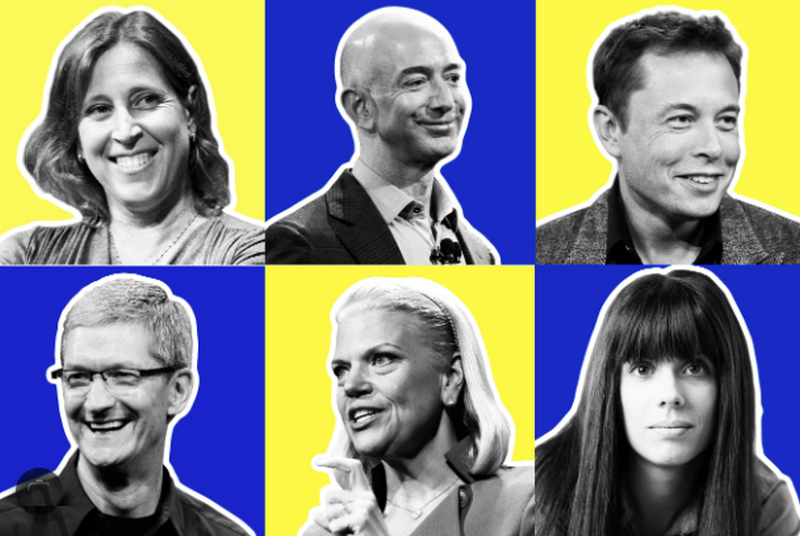
Microsoft, Google, Amazon, and Meta are among the leading tech companies that have announced new AI initiatives
How will Microsoft grow as a result of artificial intelligence?
Defiance ETFs CEO and CIO Sylvia Jablonski provides insight on Microsoft's earnings and the impact of AI on Making Money.
Artificial intelligence (AI) has advanced at a rapid pace recently and several of the biggest names in the tech sector have launched new tools to help customers and client leverage the technology in a variety of ways.
AI-powered chatbots, cloud services, and tools for web developers are among the tools that are quickly becoming staple offerings of tech companies. Major U.S. tech firms – including Amazon, Google, Meta, and Microsoft – have each rolled out AI initiatives or have some in the works, although Apple has been notably quiet in announcing any big AI moves to date.
Here’s a look at the major public-facing AI initiatives at four of the biggest tech companies:
THESE JOBS ARE SAFE FROM THE AI REVOLUTION – FOR NOW
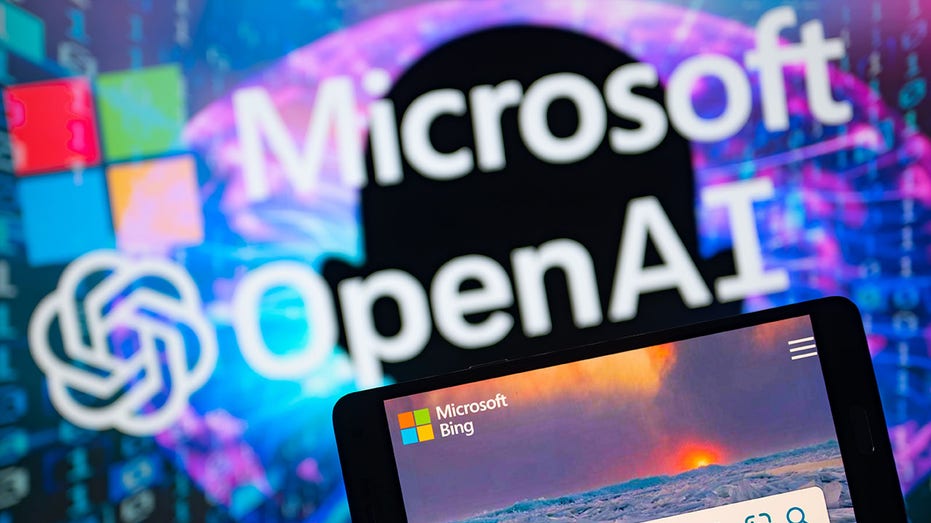
Microsoft and OpenAI's partnership has brought AI tools to the Bing search engine and Edge web browser, in addition to cloud tools. (Jonathan Raa/NurPhoto via Getty Images / Getty Images)
MICROSOFT
Microsoft partnered with OpenAI – a company that developed ChatGPT and received over $10 billion in investment from Microsoft – to bring an AI chatbot that mimics a human in conversation to its Edge browser and Bing search engine in February 2023.
The integration of OpenAI’s latest AI technology into Bing gives users more relevant search results, summarizes answers, and facilitates complex searches through its chat function. In the Edge browser, users can use chat and composition functionalities to summarize or draft content. Both Bing and Edge have seen an uptick in usage since the AI integrations were released.
The company has also updated its cloud platform to incorporate the new AI technologies. Microsoft’s Azure OpenAI Service became generally available in January and was updated to feature ChatGPT-4 in March.
In an earnings call last week, Microsoft CEO Satya Nadella called Microsoft 365 Copilot, which was released last month, the "future of work." He touted the AI chatbot’s integration into Microsoft Office programs like Word, Excel, PowerPoint, and Outlook where it can help draft content and presentations, summarize email, and automate other repetitive tasks.
GOOGLE, MICROSOFT IN Q1 EARNINGS PROVIDE UPDATES ON AI PUSH
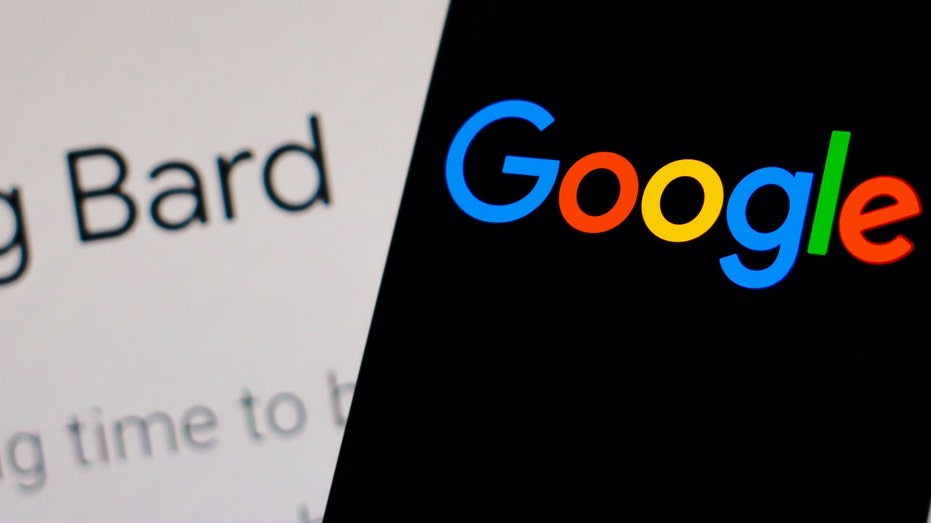
Google released its Bard AI chatbot and is reportedly planning AI integrations for search. ((Photo Illustration by Rafael Henrique/SOPA Images/LightRocket via Getty Images) / Getty Images)
Google released Bard, its experimental chatbot rival to ChatGPT, in March. Bard can be integrated into websites, apps, or messaging platforms and can provide realistic responses to questions posed by users. The company has noted that Bard is still in its early stages and "may sometimes provide inaccurate, misleading or false information while presenting it confidently."
In April, Google updated Bard to add programming and software development features that include code generation, debugging, and code explanation, in addition to Google spreadsheet formulas. The move came in response to requests by users to incorporate coding capabilities.
Google is yet to roll out new AI integrations for its search engine and its Chrome web browser, although changes to search could be on the way.
The New York Times recently reported that Google launched an internal task force to work on AI search features under the codename "Magi" in response to Microsoft’s integration of ChatGPT in Bing and Edge. Microsoft’s advances reportedly prompted Samsung to consider replacing Google with Bing as the default search provider on its devices – a move that could cost Google billions.
Google CEO Sundar Pichai spoke at an earnings call last week about AI-related search and said, "We will continue to incorporate generative AI advances to make search better in a thoughtful and deliberate way." According to the New York Times report, an initial rollout of the AI search integration could occur in May with additional features due sometime this fall.
MUSK MEETS WITH SCHUMER, DISCUSSES AI, THE ECONOMY, AND ‘THE FUTURE
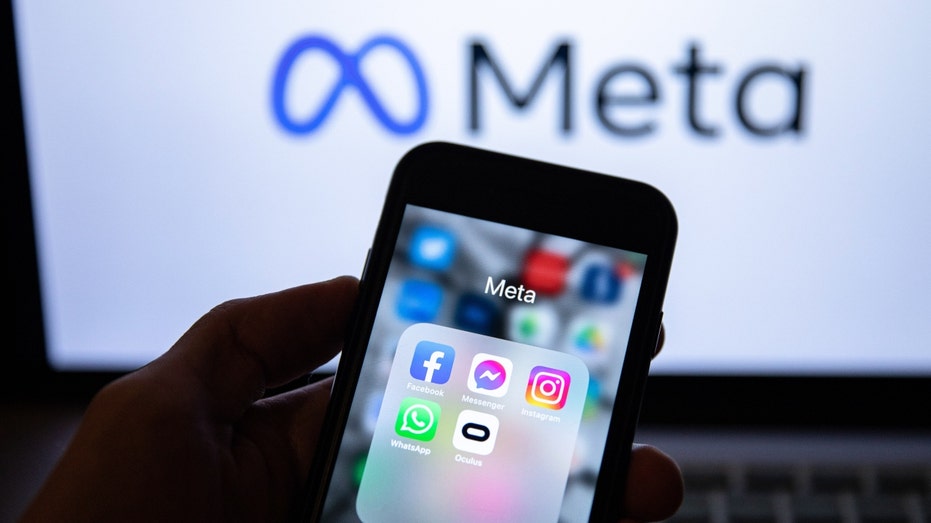
Meta is experimenting with ways to incorporate AI tools into Facebook, Messenger, Instagram, and WhatsApp. ((Photo Illustration by Onur Dogman/SOPA Images/LightRocket via Getty Images) / Getty Images)
META
Meta CEO Mark Zuckerberg indicated in an earnings call Wednesday that the company sees "an opportunity to introduce AI agents to billions of people in ways that will be useful and meaningful."
In particular, he noted the company is "exploring" several types of AI integrations, including:
- Chatbots for WhatsApp and Messenger.
Visual creation tools for posts on Facebook, Instagram, and advertising platforms.
- Video and multi-modal experiences.
Zuckerberg said he expects that "a lot of interest in AI agents for business messaging and customer support will come once we nail that experience." He added, "Over time this will extend to our work on the metaverse too, where people will much more easily be able to create avatars, objects, worlds, and code to tie all of them together."
AMAZON ANNOUNCES NEW CUSTOMIZABLE AI MODELS FOR CLOUD CUSTOMERS
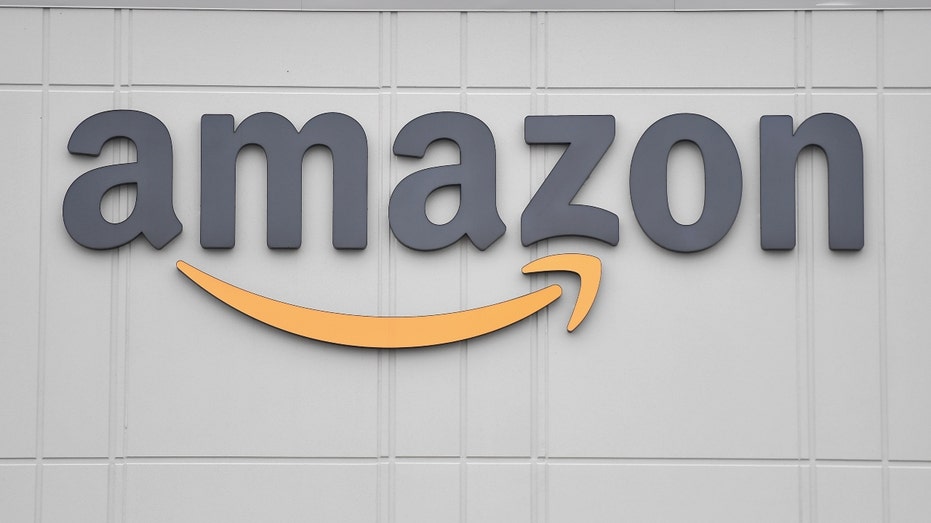
Amazon and AWS are offering cloud customers access to Bedrock's suite of AI tools. ((Photo by ANGELA WEISS/AFP via Getty Images) / Getty Images)
AMAZON
Amazon and Amazon Web Services (AWS), its cloud computing division unveiled a service called Bedrock that will let business clients customize foundation models – which are the core AI technologies that respond to users with human-like text or generate images from a prompt.
The Bedrock service is based on Amazon’s proprietary foundation models (FMs), known as Amazon Titan, but also gives users access to models from third-party startups AI21 Labs, Anthropic, and Stability AI, each of which has unique features for cloud customers:
- AI21 Labs includes multilingual language-learning models (LLMs) from the Jurassic-2 family which can follow natural language instructions to generate text in Spanish, French, German, Portuguese, Italian, and Dutch.
- Anthropic’s LLM called Claude can perform conversational and text-processing tasks based on the company’s research into AI systems.
- Stability AI offers text-to-image foundational models, including Stable Diffusion, which can generate unique and realistic high-quality images, art, logos, and designs.
Bedrock users will have access to two Amazon Titan LLMs. The first can do tasks like classification, information extraction, open-ended question and answers, summarization, and text generation. The second can translate words, phrases, or large units of text into numerical representations called "embeddings" that can be used in applications to produce more relevant and contextual responses than word matching – which is similar to how search functions on Amazon.com when customers shop for products.
AWS has also partnered with an AI startup called Hugging Face, which has natural language processing (NLP) models that compete with OpenAI’s ChatGPT, to make models more accessible so that they can be deployed in minutes or hours as opposed to weeks or more on Amazon’s platforms. Hugging Face is also developing an open-source rival to ChatGPT that will be hosted on AWS.

